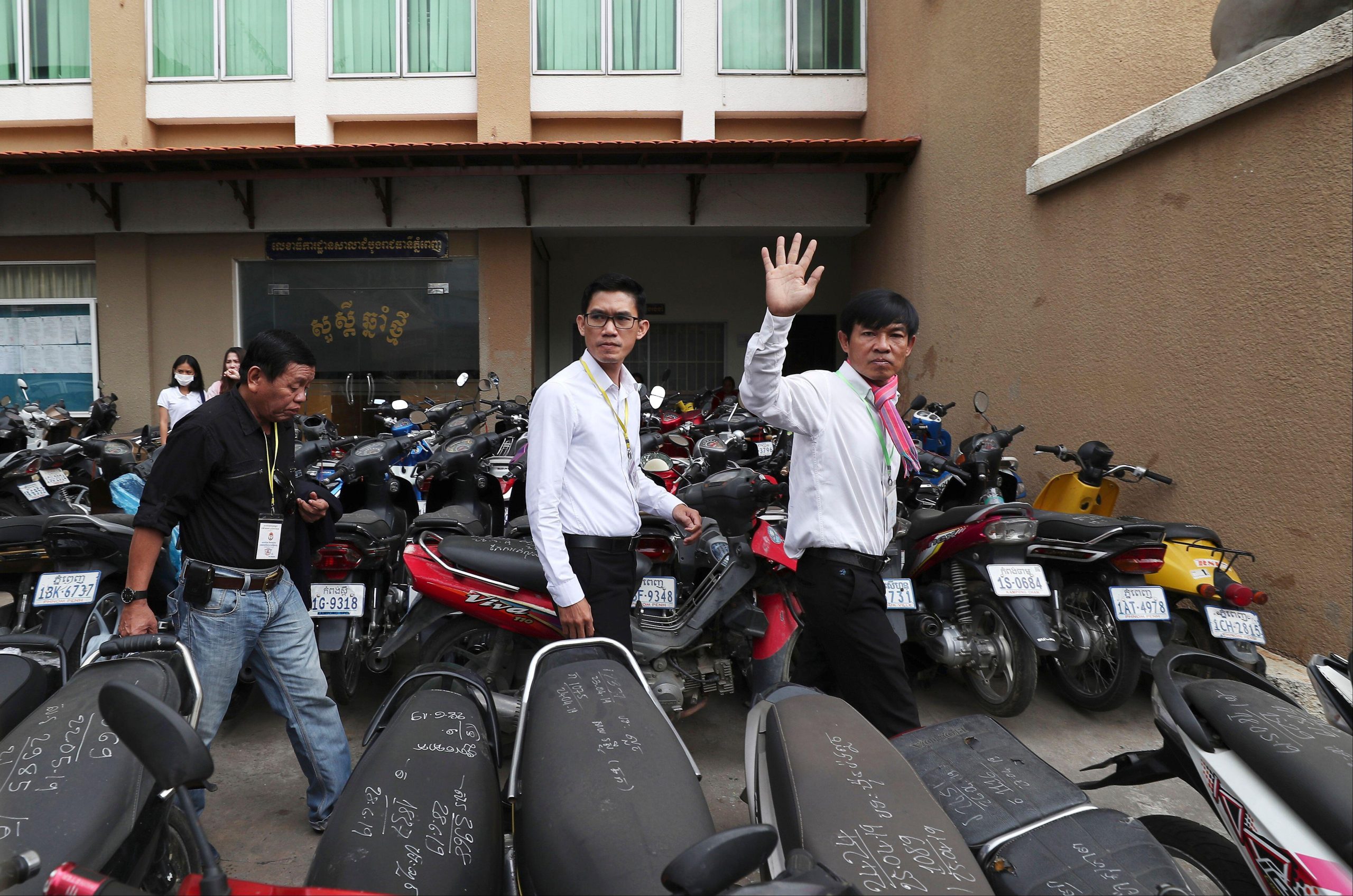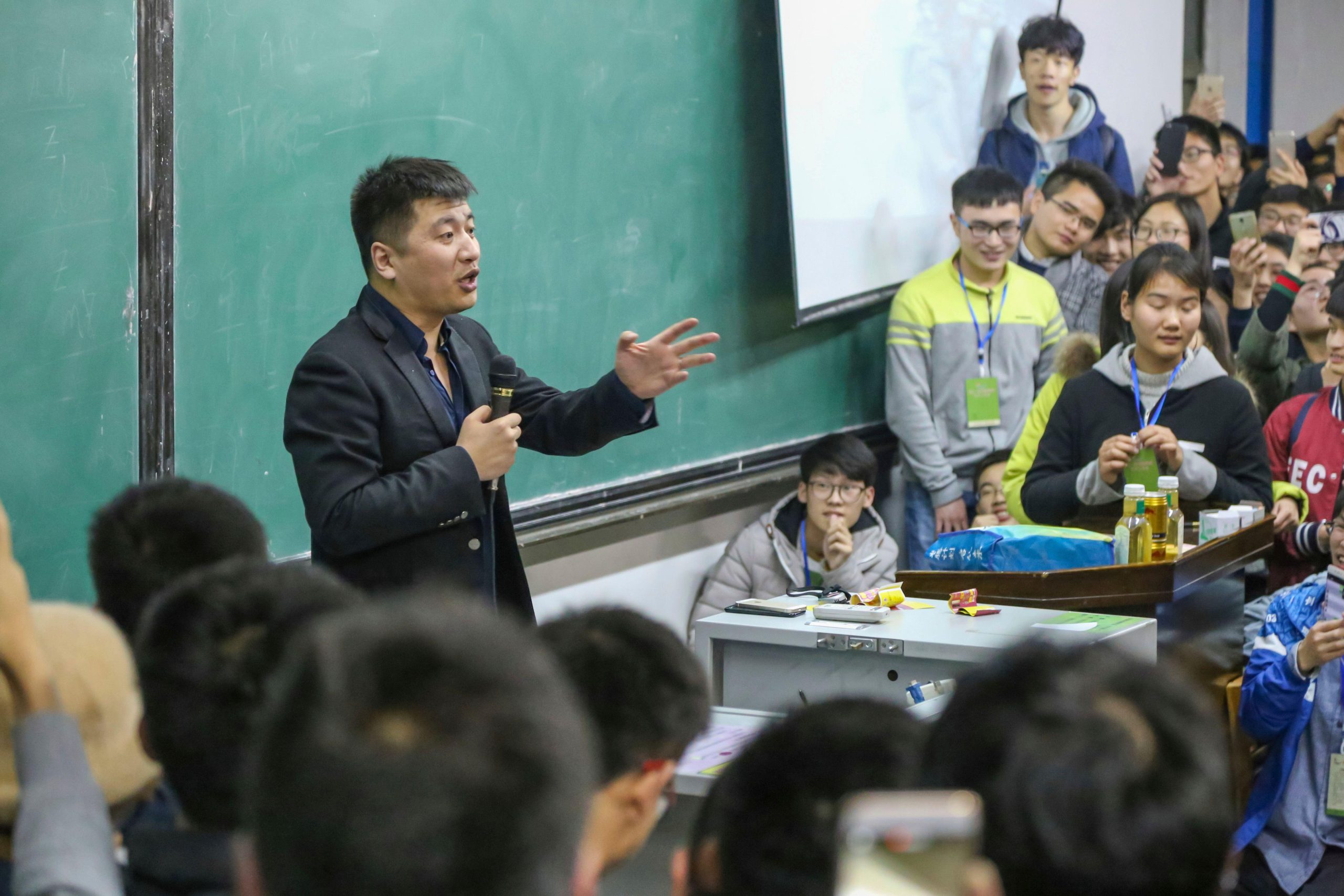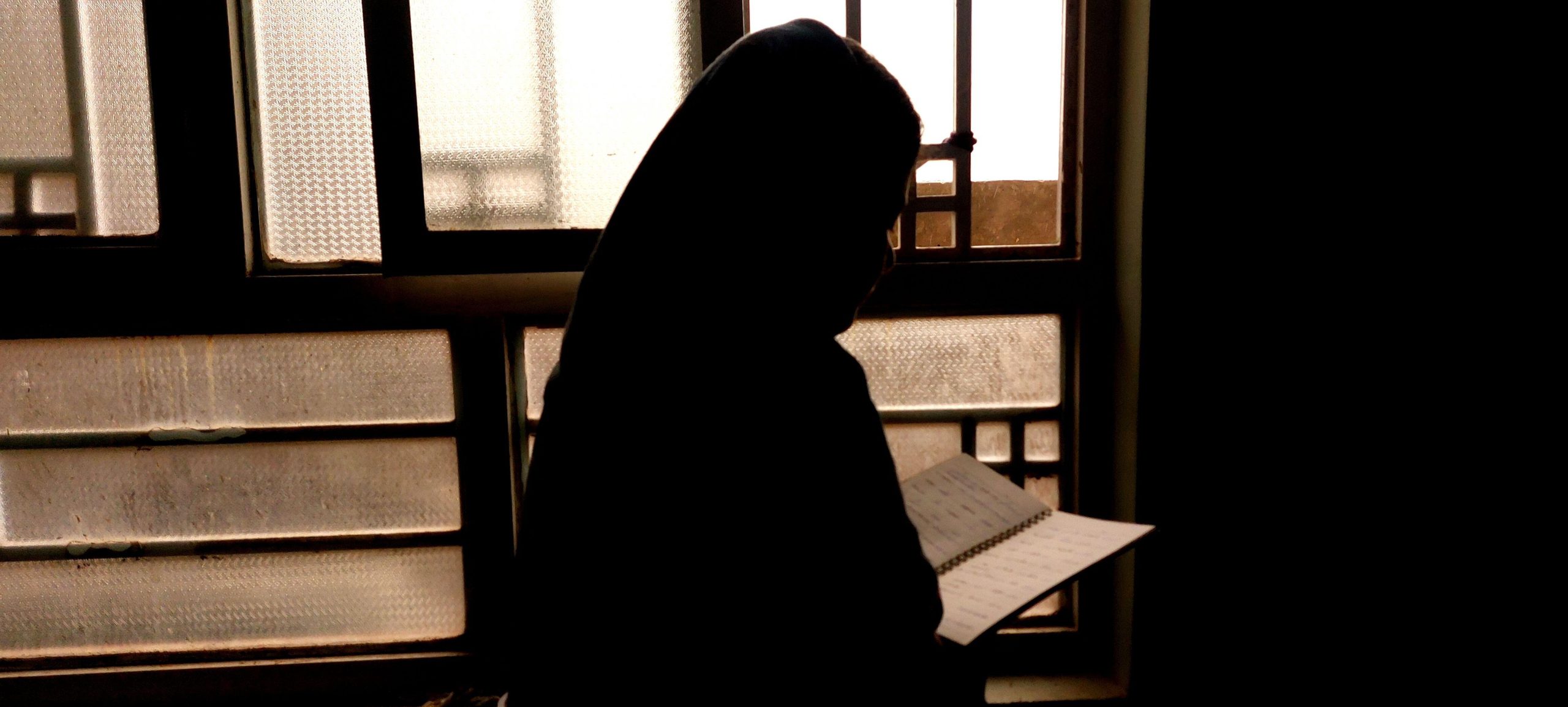This article first appeared in Volume 54, Issue 2 of our print edition of Index on Censorship, titled Land of the Free?: Trump’s war on speech at home and abroad, published on 21 July 2025. Read more about the issue here.
Kyaw Min Htun, a Burmese editor and reporter, moved from his home in Myanmar to the USA more than 20 years ago, seeking a place where he could finally report freely. For two decades, the USA provided that, allowing him to secure various roles at Radio Free Asia (RFA), which is based in Washington DC. On 15 March, however, that all changed.
Alongside about 75% of his US-based colleagues, Htun was told not to go into work. His job was one of thousands of casualties of president Donald Trump’s sweeping cuts to government-backed initiatives.
“Our hands are tied and we cannot do our jobs,” Htun, who was deputy director of RFA when he was furloughed, told Index.
At the beginning of May, RFA announced it would be terminating the contracts of more than 90% of its US-based staff and shutting down several language services. Days later, this move was delayed due to an administrative stay from the courts.
On 14 March, Trump had signed an executive order to stop federal funding to the US Agency for Global Media (USAGM), which oversees US-funded international media. It came amid a broader assessment by the State Department of all overseas spending that has so far led to the termination of the country’s support for more than 80% of the global aid projects it had backed.
USAGM financially supports RFA and other media platforms including Voice of America (VOA), Radio Free Europe/Radio Liberty (RFE/RL), Office of Cuba Broadcasting and the Middle East Broadcasting Networks. Its aim – since its inception with VOA in 1942 to counter Nazi propaganda as a form of soft power – has always been “to inform, engage and connect people around the world in support of freedom and democracy”. Collectively, USAGM outlets have created news in 64 languages, reaching 427 million people each week.
In many countries, such outlets are a lifeline, offering a window into what’s happening at home and abroad amid wars and famines, disasters and conflicts.
RFA – which was broadcasting in nine languages in China, Myanmar, Vietnam, Laos, Cambodia and North Korea – has been a fixture in Asia’s media landscape since 1996, when it was established to counter propaganda. It has won awards for covering under-reported issues, including the plight of North Korean escapees, the impact of the civil war in Myanmar and the treatment of the Uyghurs.
The Trump administration, however, sees VOA and RFA as “radical propaganda”, and what it calls “anti-Trump content”.
Elon Musk – the tech billionaire and, at the time, a senior adviser to the president – said on his social media platform X that RFA and RFE were made up of “radical left crazy people talking to themselves while torching $1billion [a] year of US taxpayer money”.
While support for some outlets could resume amid several lawsuits that have been lodged against USAGM and the government, many are worried about the ramifications already being felt by journalists, citizens and democracy as a whole in Asia.
The fallout
Aleksandra Bielakowska, director of advocacy and assistance at Reporters Without Borders (RSF), told Index that many of RFA’s regional reporters were journalists working in exile or underground in places such as Cambodia or Myanmar.
Journalists including Mech Dara, who exposed trafficking and scam compounds in Cambodia, and Sai Zaw Thaike, who reported on the mistreatment of inmates inside Myanmar prisons, are being persecuted by their governments. These journalists operate clandestinely to ensure stories from their countries are told, free from state influence.
The funding cut meant RFA had to sever the contracts of most of its local freelancers, exposing them in a region where press freedom is rapidly in decline. Myanmar, China, North Korea and Vietnam are among the top 10 worst countries for journalist safety. Last year, 20 journalists were killed in Asia (up from 12 in 2023) and 30% of global arrests of journalists took place on the continent.
Several efforts are being made to curtail media freedoms in countries across Southeast Asia in particular, said Bryony Lau, deputy Asia director at Human Rights Watch.
Vietnam is one of the world’s worst jailers of journalists; in Tibet, the Chinese government forbids foreign media from entering; and in Hong Kong, since the adoption of Beijing’s National Security Law in 2020, many outlets have been forced to close and their journalists arrested on national security charges.
Bielakowska said there was currently little protection available for journalists in the region, and the situation could get worse when “authoritarian regimes […] don’t see any opposition from democratic countries”.
Certain authoritarian leaders celebrated the USA’s abandonment of such publications, said Lau. Cambodia’s leader Hun Sen praised Trump on Facebook for combating “fake news”, while Global Times, part of China’s state media, lauded the cuts, claiming “almost every malicious falsehood about China has VOA’s fingerprints all over it”.
“This just tells you actually how impactful that reporting really was,” Lau said, adding that the US cuts had made the work of restricting media freedoms by these governments much easier.
“Press freedom is definitely on the retreat, and what comes in its place is never anything great,” said Rohit Mahajan, chief communications officer at RFA.
A lack of safety globally
Back in the USA, reporters’ jobs are at risk. RFA has put the majority of its staff in its headquarters on leave and VOA has had to furlough 1,300 staff, the majority of whom are journalists.
Washington-based Htun, although among those affected, considers himself lucky. With US citizenship – he sought political asylum in 2005 – he can remain in the country, but many of RFA’s team come from Asia and their US visas are reliant on their work status. For some, the prospect of returning home – potentially to a country such as Cambodia or China where they may have helped to highlight human rights abuses – is a dangerous one.
“With the current administration’s policies, it is very hard to say they are safe even if they apply for asylum here, because they could be denied any time and they could be deported,” said Htun. “This is an unprecedented, man-made disaster.”
Aside from the threat of deportation, the furloughed staff are now not earning and are scrambling to find work. They are among thousands in the capital who have lost their jobs since the wave of executive orders, which have seen other government departments closed or drastically reduced in size.
This means that competition for jobs is fierce, said Htun. The USAGM Employee Association is collating donations to support journalists affected.
Information black holes
Aside from the impact on the safety of journalists, the shuttering of these media platforms, or even just a reduction in their content, impacts the public, limiting information.
It creates a “black hole of information”, said Bielakowska, who added that this would certainly be the case in countries such as Laos and Tibet, which are more closed. In countries with strict authoritarian regimes, VOA and RFA are often the only accessible forms of information other than state-sponsored or heavily-censored media.
This will lead to “a dramatic turning off of a pipeline of accurate and independent news stories about what is happening within authoritarian states”, said Joshua Kurlantzick, senior fellow for Southeast Asia and South Asia at the Council on Foreign Relations. “There isn’t as good a source in Lao, Khmer, Vietnamese, Tibetan as RFA. People will lose touch with the real world.”
Many in Myanmar – where a civil war has raged since 2021 and the military has shut down internet access in parts of the country – rely on shortwave radio for information on the war and wider events, such as the destructive earthquake in March. While the BBC and VOA are available, only a portion of their content focuses on Myanmar whereas 100% of RFA Burma’s content is focused on the country, said Htun. He explained that a content vacuum gave the Myanmar military junta an opportunity to exploit the situation by sharing their own propaganda and misinformation.
Samady Ou, an American-Cambodian activist and youth ambassador for Khmer Movement for Democracy, cannot go home to Cambodia because his democracy work has put a target on his back. He said that there was no reliable media outlet in the country without VOA and RFA.
“Right now, in Cambodia, we don’t have any news medium left that is independent and not pro-government,” he said. “When there’s unjust goings on like land grabs or Chinese big companies coming in taking away land, [Cambodians] have no voice at all.”
US pro-democracy organisation Freedom House ranks Cambodia as “not free” as a result of a “severely repressive environment” driven by the Cambodian People’s Party which “has maintained pressure on the opposition, independent press outlets and demonstrators with intimidation, politically motivated prosecutions and violence”.
Looking ahead
Experts hope the funding cut is only temporary and the USA will see the value in supporting regional media.
Historically, USAGM has always enjoyed strong bipartisan support from Congress across every administration, explained Mahajan, calling these platforms “unique tools in America’s soft power”.
Most USAID funding in Asia has been directed towards peace and security projects, indicating that this has historically been a vested interest for the USA.
“I think there’s a consensus inside of the Congress, even right now, that China and authoritarian regimes are one of the biggest challenges of the USA, and without the right information, freedom of the press and access to reliable information, we’ll have no updates about these countries, and these countries will also manage to spread their model of information inside of Asia, which is a direct threat to the USA itself,” said Bielakowska. Whether the new administration can be convinced of this is yet to be seen.
In the meantime, RFA has filed a lawsuit, claiming the government is unlawfully withholding funds and that only Congress can fund or defund an organisation it has created.
“We are trying to keep RFA afloat as we pursue a legal challenge to the termination of our grant, which we believe is unlawful,” Mahajan said. RFE and the Middle East Broadcasting Networks have also filed lawsuits.
In April, the US District Court for the District of Columbia granted an injunction to restore funding to USAGM, but the government is yet to release the funds. Htun predicts that the legal process will wage on for months to come, potentially escalating to the Supreme Court.
“This drama could take longer than expected – probably two or three more months,” he said.
During that time, journalists will remain out of work and exposed while citizens across Asia will be far less informed.
But there is always a chance that other funders could be found for these media platforms.
“Other states and entities and private organisations could fill some of the gaps in funding for media outlets,” said Kurlantzick, who called on powerful countries in the region to stand up for media freedom by committing more funds.
Lau said it was in the interests of other concerned governments to have access to reliable information, as well as to the private sector operating in some of these countries.
Such is the public support for these media sources that Ou believes the public in Asian countries may also crowdfund to keep them functioning.
In the meantime, Bielakowska is confident that RFA and VOA are used to operating in fragile situations.
“Even with this blow, I still hope that they can continue working on the ground and find ways to support themselves.”






